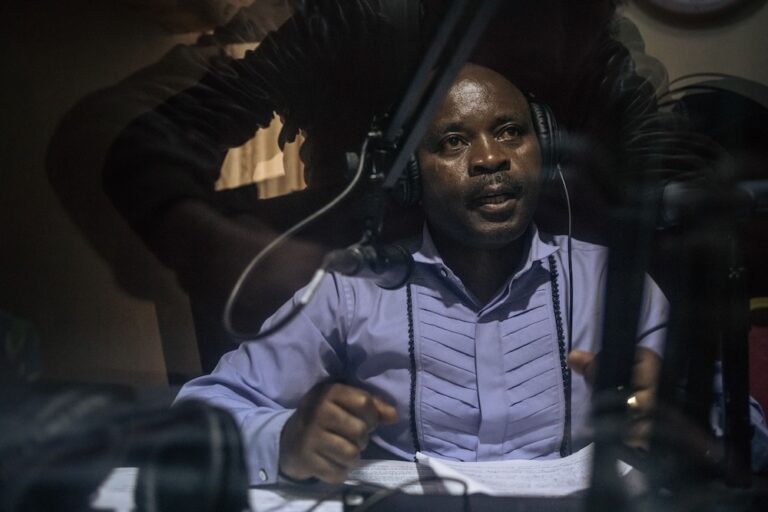(JED/IFEX) – In a 21 October 2000 letter signed by Ministry of Communications’ Secretary-General Bagalama Ka Yange and addressed to Lumbana Kapasa and Charles Dimandja Wembi, RTKM (Radiotélévision Kin Malebo) director-general and information director, respectively, Minister of Communications Dominique Sakombi Inongo announced their dismissal. “Following everything that has taken place, and on order of His […]
(JED/IFEX) – In a 21 October 2000 letter signed by Ministry of Communications’ Secretary-General Bagalama Ka Yange and addressed to Lumbana Kapasa and Charles Dimandja Wembi, RTKM (Radiotélévision Kin Malebo) director-general and information director, respectively, Minister of Communications Dominique Sakombi Inongo announced their dismissal. “Following everything that has taken place, and on order of His Excellency the minister of communications, the supervising authority, I inform you that you have been relieved of your duties”, announces the secretary-general’s letter.
The letter of dismissal also indicates that the two RTKM directors are accused of demonstrating “a poor attitude with regard to the application of the government decision placing TKM Television and TKM Radio under his [the minister of communication’s] authority”. The letter adds that the two directors remained “reticent to the application of the temporary programming schedule which was approved by the supervising authority, notably with regard to the production of the televised news programme”.
To recall, the private station RTKM, owned by a former information minister under Mobutu, was banned on 14 September by order of the minister of communications for “refusing to sign the schedule of conditions and non-payment of taxes owed to the state”. On 21 September, despite the fact that RTKM paid its back taxes owed, the minister of communications decided to place the private station under the supervision of his ministry. The explanation for this move was that the station’s materials were purchased with misappropriated funds.
At a 12 October press conference, faced with protests from many sectors and responding to JED’s accusation that the move was illegal, the minister of communications stated that RTKM’s nationalisation was “a political decision” and that he had no intention of reversing his decision.
On 16 October, RTKM was authorised to broadcast anew. A new programming schedule prepared by the minister of communications’ cabinet was imposed on the station. As part of the new programming, at least two hours and forty-five minutes of each day is dedicated to propaganda programmes and advertising spots focused on President Kabila. This represents a complete return to the presidential cult of personality which characterised the Mobutu years.


